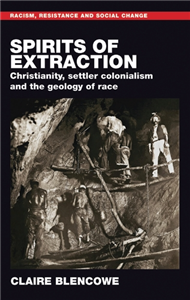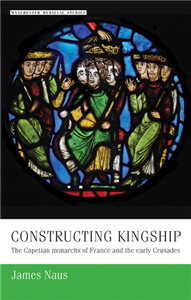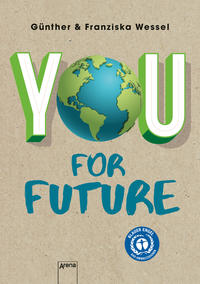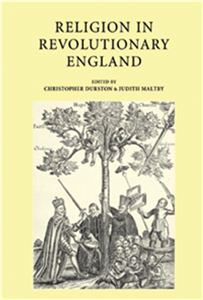Your Search Results
-
Promoted ContentLiterature & Literary StudiesSeptember 2020
God's only daughter
Spenser's Una as the invisible Church
by J. B. Lethbridge, Kathryn Walls
In this study, Kathryn Walls challenges the standard identification of Una with the post-Reformation English Church, arguing that she is, rather, Augustine's City of God - the invisible Church, whose membership is known only to God. Una's story (its Tudor resonances notwithstanding) therefore embraces that of the Synagogue before the Incarnation as well as that of the Church in the time of Christ and thereafter. It also allegorises the redemptive process that sustains the true Church. Una is fallible in canto I. Subsequently, however, she comes to embody divine perfection. Her transformation depends upon the intervention of the lion as Christ. Convinced of the consistency and coherence of Spenser's allegory, Walls offers fresh interpretations of Abessa (as Synagoga), of the fauns and satyrs (the Gentiles), and of Una's dwarf (adiaphoric forms of worship). She also reinterprets Spenser's marriage metaphor, clarifying the significance of Red Cross as Una's spouse in the final canto.
-
Promoted ContentMarch 2024
The Strategy of Rescue
The past and present of a power-political concept
by Johannes F. Lehmann
"Rescue” has two fundamentally different “existential” dimensions. One is aimed at “saving” individual lives that are in danger. Firefighters, for instance, rescue people from fires, while the sea rescue services rescue shipwrecked people from the Mediterranean. The second dimension of “rescue”, on the other hand, concerns systems – think of the bailing out of banks, the euro or the climate disaster – and so points to a larger context that creates the conditions for “life” to even be possible, or at least to be preserved. The complex subject of this stringent essay is just to what extent politics enable or prevent “rescue attempts”, to what extent it understands its actions as “rescue actions”, and how decisively the “narrative”, i.e. the “talk of rescue”, ultimately dominates our entire understanding of politics.
-
 Trusted Partner
Trusted Partner
-
 Trusted Partner
Trusted Partner
-
 Trusted Partner
Literature & Literary StudiesDecember 2005
Trusted Partner
Literature & Literary StudiesDecember 2005Graham Swift
by Daniel Lea, Susan Williams
This book offers an accessible critical introduction to the work of Graham Swift, one of Britain's most significant contemporary authors. Through detailed readings of his novels and short stories from 'The Sweet Shop Owner' (1980) to 'The Light of Day' (2003), Daniel Lea lucidly addresses the key themes of history, loss, masculinity and ethical redemption, to present a fresh approach to Swift. This study proposes that one of the side-effects of modernity has been the destruction of traditional pathways of self and collective belief, leading to a loss of understanding between individuals about their duties to each other and to society. Swift's writing returns repeatedly to the question of what we can believe in when all the established markers of identity - family, community, gender, profession, history - have become destabilised. Lea suggests that Swift increasingly moves towards a notion of redemption through a lived ethical practice as the only means of finding solace in a world lacking a central symbolic authority. ;
-
 Trusted Partner
Humanities & Social SciencesMarch 2025
Trusted Partner
Humanities & Social SciencesMarch 2025Spirits of extraction
Christianity, settler colonialism and the geology of race
by Claire Blencowe
Spirits of extraction revisits the troubling history of socially reformist, ostensibly anti-racist, Christianity and its role in the expansion of the extractive industries, British imperialism, and settler colonialism. The book explores key moments in the history of Methodism and the evangelical movement. Colonial fears, and the attempt to 'civilise savages', were crucial to the movement's foundation in eighteenth-century industrialising Bristol, England. Through the culture of the Cornish mining diaspora of the nineteenth century, Methodism enmeshed with all the complexity of race and labour-structures of the British empire. At the same time, in Anishinaabewaki/Upper Canda/Ontario, Methodist missionaries laid the foundation of abusive education and racialised ideas of redemption that both enable and sacralise the mining industry. Through these histories of our present, the book theorises the relation of religion and education to racism, modernity, biopower, extractivism, and the geology of race.
-
 Trusted Partner
Literature & Literary StudiesApril 2018
Trusted Partner
Literature & Literary StudiesApril 2018Water and fire
The myth of the flood in Anglo-Saxon England
by Anke Bernau, Daniel Anlezark
Noah's Flood is one of the Bible's most popular stories, and flood myths survive in many cultures today. This book presents the first comprehensive examination of the incorporation of the Flood myth into the Anglo-Saxon imagination. Focusing on literary representations, it contributes to our understanding of how Christian Anglo-Saxons perceived their place in the cosmos. For them, history unfolded between the primeval Deluge and a future - perhaps imminent - flood of fire, which would destroy the world. This study reveals both an imaginative diversity and shared interpretations of the Flood myth. Anglo-Saxons saw the Flood as a climactic event in God's ongoing war with his more rebellious creatures, but they also perceived the mystery of redemption through baptism. Anlezark studies a range of texts against their historical background, and discusses shifting emphases in the way the Flood was interpreted for diverse audiences. The book concludes with a discussion of Beowulf, relating the epic poem's presentation of the Flood myth to that of other Anglo-Saxon texts.
-
 Trusted Partner
Humanities & Social SciencesMarch 2018
Trusted Partner
Humanities & Social SciencesMarch 2018Constructing kingship
The Capetian monarchs of France and the early Crusades
by S. H. Rigby, James Naus
Crusading kings such as Louis IX of France and Richard I of England exert a unique hold on our historical imagination. For this reason, it can be easy to forget that European rulers were not always eager participants in holy war. The First Crusade was launched in 1095, and yet the first monarch did not join the movement until 1146, when the French king Louis VII took the cross to lead the Second Crusade. One contemporary went so far as to compare the crusades to 'Creation and man's redemption on the cross', so what impact did fifty years of non-participation have on the image and practice of European kingship and the parameters of cultural development? Constructing kingship considers this question by examining the challenge to political authority that confronted the French kings and their family members as a direct result of their failure to join the early crusades, and their less-than-impressive involvement in later ones.
-
 Trusted Partner
Humanities & Social SciencesJanuary 2013
Trusted Partner
Humanities & Social SciencesJanuary 2013Christian Dualist Heresies in the Byzantine World, c. 650-c. 1450
by Janet Hamilton, Bernard Hamilton
Christian dualism originated in the reign of Constans II (641-68). It was a popular religion, which shared with orthodoxy an acceptance of scriptual authority and apostolic tradition and held a sacramental doctrine of salvation, but understood all these in a radically different way to the Orthodox Church. One of the differences was the strong part demonology played in the belief system. This text traces, through original sources, the origins of dualist Christianity throughout the Byzantine Empire, focusing on the Paulician movement in Armenia and Bogomilism in Bulgaria. It presents not only the theological texts, but puts the movements into their social and political context.
-
 Trusted Partner
FictionSeptember 2018
Trusted Partner
FictionSeptember 2018Puma
By Anthony Burgess
by Paul Wake, Andrew Biswell
Puma - disentangled from the three-part structure of The End of the World News and published here for the first time in its intended format - is Anthony Burgess's lost science fiction novel. Set some way into the future, the story details the crushing of the planet Earth by a heavyweight intruder from a distant galaxy - the dreaded Puma. It is a visceral book about the end of history as man has known it. Despite its apocalyptic theme, its earthquakes and tidal waves, murder and madness, Puma is a gloriously-comic novel, steeped in the rich literary heritage of a world soon to be extinguished and celebrating humanity in all its squalid glory. In Burgess's hands this meditation on destruction, mitigated by the hope of salvation for a select few, becomes powerful exploration of friendship, violence, literature and science at the end of the world.
-
 Trusted Partner
April 2021
Trusted Partner
April 2021The Patient Catchers
How we are talked into illness
by Michelle Hildebrandt
The health market seems to have been unleashed, more and more actors, indications, methods compete for attention. Dr. Michelle Hildebrandt shows how companies, but also doctors and alternative medicine are “catching” patients out of economic interests – and how we are happy to put up with that. So more and more people are being treated unnecessarily or incorrectly with medicine and therapies, while at the same time rogue providers are propagating sometimes dangerous methods instead of calling for life-saving diagnostics. Knowledge is needed in order for patients to overcome their self-inflicted immaturity. Michelle Hildebrandt‘s book makes an important contribution to this.
-
 Trusted Partner
April 2025
Trusted Partner
April 2025Morning-After Pill
Emergency contraception advice
by Maren Kelm
Missed a pill, broken condom or unprotected sex – when every minute counts, swift action is essential! Since 2015, women in Germany have been able to go directly to the pharmacy – saving valuable time otherwise spent visiting a doctor. This guide equips pharmacy staff with the essential knowledge to provide safe, informed support during sensitive consultations: • Background and key facts: legal, physiological, and pharmacological information on emergency contraception • Counselling support: decision-making flowcharts, communication tips and FAQs • Case examples: guidance for borderline situations • Tools and aids: QMS info, check-list and Federal Pharmacy Chamber (BAK) guidelines, English-language tips and useful contacts Now in its second, updated edition, this guide is an essential everyday resource for pharmacy staff providing emergency contraception advice. Target group: Pharmacists, pharmaceutical technicians, pharmacy interns
-
 Trusted Partner
February 2019
Trusted Partner
February 2019Das Herz der Zeit: Die unsichtbare Stadt
The Heart of Time: The Invisible City
by Monika Peetz
15 year-old Lena discovers an ancient clock among her dead parents’ old things and accidentally activates the timepiece’s mechanism. Far away in the invisible city, a place not of this world, a boy takes notice of her: Dante. He is curious to find the daughter of the legendary woman who once left the time-travellers society to live a mortal life. When Lena learns about the mechanisms of time, she decides to change her own fate and travels back to the night, her parents died. Only too late she realises that meddling in her own life automatically affects the lives of everyone else around her too. The story reaches its peak when Lena has to decide between getting her parents back and saving the life of her best friend Bobbie. 12+ years The first volume of an enthralling new fantasy trilogy with two headstrong time-travellers English sample translation available!
-
 Trusted Partner
Children's & YA
Trusted Partner
Children's & YAYou for Future
by Franziska Wessel/ Günther Wessel
‘We will not stop demonstrating,’ writes Franziska Wessel in a guest column in the Berliner Zeitung. Franziska is pursuing a goal. Decisive measures must finally be taken to protect the climate. While that is not happening she spends every Friday on the streets, gives interviews and puts pressure on politicians. But climate change isn’t the only thing threatening our future. There is so much suffering, injustice and destruction in the world. Something must be done about it. And as a climate activist, Franziska knows exactly how to be active. Together with her father, the journalist and author, Günther Wessel, she explains: How do I start a petition? How do I organise a campaign? How does lobbying work? So that everyone knows how they can make things happen.
-
 Trusted Partner
Humanities & Social SciencesJanuary 2007
Trusted Partner
Humanities & Social SciencesJanuary 2007Religion in Revolutionary England
by Christopher Durston, Judith Maltby
This book offers a collection of essays tightly focused around the issue of religion in England between 1640 and 1660, a time of upheaval and civil war in England. Edited by well-known scholars of the subject, topics include the toleration controversy, women's theological writing, observance of the Lord's Day and prayer books. To aid understanding, the essays are divided into three sections examining theology in revolutionary England, inside and outside the revolutionary National Church and local impacts of religious revolution. Carefully and thoughtfully presented, this book will be of great use for those seeking to better understand the practices and patterns of religious life in England in this important and fascinating period. ;
-
 Trusted Partner
May 2023
Trusted Partner
May 2023How Philosophers Fail Themselves
The somewhat different historyof philosophy
by Otto A. Böhmer
— Philosophy for beginners — For philosophy enthusiasts — A pleasant read This truly brilliant book tells of the sometimes sublime, sometimes exhilarating efforts of philosophers to maintain their attitude in everyday life without forgetting the meaning of their own words – and how they ultimately failed to do so. The minor, sometimes bizarre events in the lives of the great philosophers fit so aptly in the picture of the respective philosophy that one has to assume they could have been conceived to keep the associated intellectual giant in a strange and memorable mood. A book of cheerful science, full of wit, narrative and linguistic eloquence.
-
 Trusted Partner
October 2024
Trusted Partner
October 2024Renunciation and Freedom
Survivial in the future
by Jean-Pierre Wils
The situation in our society is precarious. The ecological shocks are omnipresent. The mere continuation of our lifestyles fixated on expansion and self-development has long since reached its limits. As if intoxicated by ourselves, we consume our world voraciously and without restraint. We need moderation and frugality that lead us out of the ecological and social dead ends and hold both the individual and Politics to account. We are by no means powerless and are perfectly capable of leading a life that offers prospects for a humane future. However, our idea of freedom needs urgent correction. For this endeavour to succeed, we need the courage to face reality and the willingness, in a spirit of solidarity, to say goodbye to a false life and join the alliance of renunciation and freedom. Then we will be free – differently and better.
-
 Trusted Partner
March 2021
Trusted Partner
March 2021Columbus, the Discarded Explorer
Disaster of the legendary sailor
by Wolfgang Wissler
There he stands, the man the whole of Spain cheered, before whom the most catholic regents Isabella and Ferdinand rose to their feet, his eyes on his ship Capitana, devoured by shipworm, stranded off Jamaica. Some of the crew mutiny, the locals can no longer be fobbed off with glass beads, the Spanish on the nearby island of Hispaniola do not help, the world doesn‘t want anything to do with him, the demanding whinger. He, Christopher Columbus, is a John Lackland, a king without land, a conqueror without conquest. Between fiction and historical truth, Wolfgang Wissler recounts the legendary sailor‘s last expedition in an entirely new way – and what a story it is!
-
 Trusted Partner
2024
Trusted Partner
2024Brave new city
Smart Cities - a survaillance-nightmare?
by Peter Schaar
The dream of the ideal city is as old as the city itself. Since real cities often develop chaotically, the idea of perfecting them, even tearing them down if necessary, and rebuilding them according to the prevailing patterns of thought is an obvious one. The latest manifestation of this utopia is the smart city - the intelligent city, packed with the latest technology and extensively digitised. But will air taxis and hyperloops, ubiquitous sensors, access control systems and data-driven management really make the city of the future a better place to live? Are they the answer to the enormous challenges facing today's fast-growing metropolises? Or will the supposed administrative paradise ultimately mutate into a digital juggernaut?
-
 Trusted Partner
Children's & YAAugust 2020
Trusted Partner
Children's & YAAugust 2020Cryptos
by Poznanski, Ursula
Where do we go when Nowhere is the only destination left? Kerrybrook is Jana‘s favourite virtual escape. An idyllic fishing village with beautiful nature and, every now and then, a breeze of fresh air from the nearby sea. Jana, is this world‘s designer and person in power, she’s satisfied with her masterpiece. Best job so far. Until one day, a dead body is found, in both, ’Virtual Reality‘ and the real world. In times of climate change, VR is the only safe place for humankind. That‘s why Jana needs to solve the crime, she’s responsible for stopping the destruction. • CliFi Thriller (Climate Fiction): Climate change & virtual reality • For fans of Black Mirror (Netflix) • All age readers • Strong, female protagonist • Highly relevant topic WHITE RAVENS recommendation (2021): "In the not too distant future, the world is an inhospitable place: droughts, storms, floods. That’s why world designers construct »alternative realities«, such as landscapes populated by dinosaurs, life at court in the Middle Ages, and surfing and chilling out on a beach. People can switch between these worlds at will and, when they die there, they are not truly dead; instead, they merely return to the »real world« – same as at night when they sleep. Then they are reunited with their body, which is lying inside a capsule. In »Cryptos«, Ursula Poznanski pulls out all the stops of storytelling: She embeds numerous references to human and intellectual history in an action-packed and extremely suspenseful thriller plot. In the process, she raises central existential and ontological questions that result from the interplay between the real and the virtual worlds. This complex dystopian novel is narrated in such an enjoyable way that readers will hardly notice their brains going into overdrive as they devour it."






























